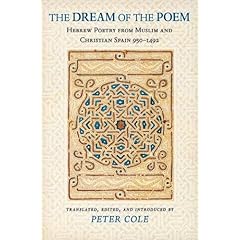I lost my way, I forgot to call on your name. The raw heart beat against the world, and the tears were for my lost victory. But you are here. You have always been here. The world is all forgetting, and the heart is a rage of directions, but your name unifies the heart, and the world is lifted into its place. Blessed is the one who waits in the traveller's heart for his turning.I do love that last line. There are others in the sequence that hit me harder, maybe because this one is more purely consoling by the close. I wonder: might Cohen's "here" gloss the Hebrew "haMakom," as in the Passover song? (Baruch haMakom, Baruch who? Baruch Shenatan, natan Torah....)
(A typo above, but I think I'll keep it. I like the ha-Hu as a Who.)


